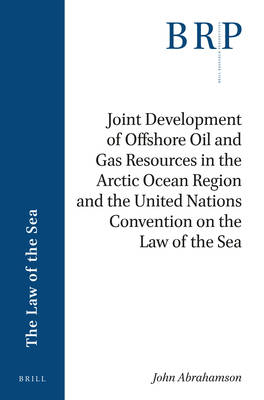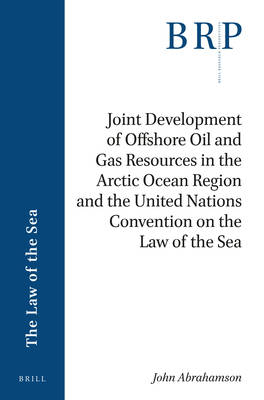
Bedankt voor het vertrouwen het afgelopen jaar! Om jou te bedanken bieden we GRATIS verzending (in België) aan op alles gedurende de hele maand januari.
- Afhalen na 1 uur in een winkel met voorraad
- In januari gratis thuislevering in België
- Ruim aanbod met 7 miljoen producten
Bedankt voor het vertrouwen het afgelopen jaar! Om jou te bedanken bieden we GRATIS verzending (in België) aan op alles gedurende de hele maand januari.
- Afhalen na 1 uur in een winkel met voorraad
- In januari gratis thuislevering in België
- Ruim aanbod met 7 miljoen producten
Zoeken
Joint Development of Offshore Oil and Gas Resources in the Arctic Ocean Region and the United Nations Convention on the Law of the Sea
John Abrahamson
€ 121,45
+ 242 punten
Omschrijving
The Arctic Ocean region presents certain challenges to peaceful cooperation between states, particularly in the locations where ocean boundaries and ownership of the related resources are disputed. The establishment of Joint Development Zones (JDZs) for the development of offshore oil and gas resources in the Arctic Ocean can facilitate international cooperation over resource development where there are competing claims. These claims are generally based on continental shelf jurisdiction under the provisions of the United Nations Convention on the Law of the Sea (UNCLOS). There are several alternative dispute resolution measures available under UNCLOS, however, a number of states have preferred to adopt a JDZ as an interim measure to allow development. The significance of JDZs for the Arctic Ocean region is that they can allow peaceful cooperation and development where the specific circumstances of Arctic claims make it difficult for the respective states to agree on the maritime boundary.
Specificaties
Betrokkenen
- Auteur(s):
- Uitgeverij:
Inhoud
- Aantal bladzijden:
- 116
- Taal:
- Engels
- Reeks:
Eigenschappen
- Productcode (EAN):
- 9789004380097
- Verschijningsdatum:
- 23/08/2018
- Uitvoering:
- Paperback
- Formaat:
- Trade paperback (VS)
- Afmetingen:
- 150 mm x 234 mm
- Gewicht:
- 176 g

Alleen bij Standaard Boekhandel
+ 242 punten op je klantenkaart van Standaard Boekhandel
Beoordelingen
We publiceren alleen reviews die voldoen aan de voorwaarden voor reviews. Bekijk onze voorwaarden voor reviews.









